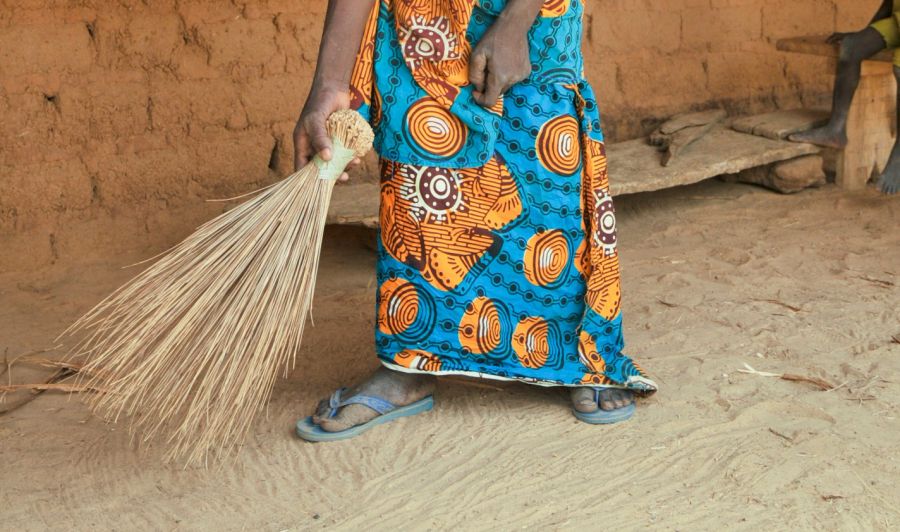
In the What We Heard blog series, we’re giving a glimpse into the communities the Born on Time partnership works within Bangladesh, Ethiopia and Mali, to target preterm birth risk factors, like unhealthy lifestyle and behaviours.
For the second instalment, women and girls from these communities share why they or their friends continued to do heavy-duty domestic work throughout their pregnancy, and what role (or lack-there-of) their husbands played in supporting them.
The reasons they shared reflect just how dangerous rigid gender norms and attitudes can be to women’s and adolescent girls’ health and rights, and those of their babies.
Women and adolescent girls who are pregnant have the right to be supported.
They have the right to a support system of health professionals and family that are committed to ensuring their wellbeing.
When crucial supports from family and health professionals are lacking, the consequences for women, adolescent girls and their babies can be deadly.
When men do want to step up and support their wives they are too often shamed or stigmatized. One teenage girl in Ethiopia told us, “When my husband comes home from work and does housework, there are people who laugh at him. When they see that he cleans the floor, fetches water, and cooks, they laugh in contempt. So, there is a custom that men do not do household tasks.”
A woman in Ethiopia shared this sentiment, saying, “Yes, a husband has to support his pregnant wife even in the household chores. But if the husband washes clothes or cleans, there is a problem in the community. When a husband is devoted and helps his pregnant wife, the community may insult him as ‘Seta set’ (feminine).”
A teenage girl in Mali told us that when husbands try to help their partners in her community, their friends ridicule them for being “slaves” to their wives.
This was another common theme, as many women and adolescent girls said their husbands claimed household chores were beneath them. A woman in Bangladesh told us that her husband didn’t help because it was a women’s job and instead relied on his mother to pick up the slack, explaining, “My husband did not help, others in the family, my mother-in-law helped.”
A girl in Ethiopia shared that, “Especially after eight months of pregnancy I was not able to work properly like before. It was difficult to stand up and sit-down. I asked him for support, but he was not willing.”
In Mali, adolescent girls expressed a frustration with their husband’s attitudes, with one girl saying, “We want the men to help us, but unfortunately they do not, and we cannot force them.”
Even more disturbingly, one girl in Mali shared that, “After childbirth, as long as we are not dead, they don’t care.”
Many women and adolescent girls said their male partners refused to take on household chores, claiming their workload was already too heavy.
However, this is a common misconception, as on average women work more hours in the day and have less rest/leisure time than men. Much like in Canada, because this work is unpaid and considered “women’s work”, it is too often undervalued and dismissed.
These ideas are deeply rooted in unequal gender norms and are often held by women themselves. In fact, many women and adolescent girls told us they did not want to add more to their partners’ plate or appear ungrateful for their efforts.
One woman in Mali told us, “They say they have enough work to do.” Another woman in Mali shared that, “If you ask to rest they will say you are lazy.”
“When we look at many women in our community, they are oppressed by their husbands. They are not very happy; they carry heavy loads,” explained a teenage girl in Ethiopia. “Husbands who are not educated do not help their wives when they have to carry heavy materials like grain.”
Another teenage girl in Ethiopia told us that, “It is not disagreement; it is because they don’t know anything. It is due to lack of education.”
The injustices these women and girls shared with us stem from deeply rooted cultural beliefs and practices that prevent males from supporting their wives through pregnancy and childbirth.
This is why Born on Time engages men and adolescent boys to become active and supportive partners. Alongside community leaders, we encourage men to accompany their female partners to health facilities, provide opportunities for rest, support breastfeeding, and take an active role in raising and caring for their children.
Publié:
novembre 14, 2018
Auteur:
Leah Siversky, Plan Canada for Born on Time
Catégories:
Partager cette publication: